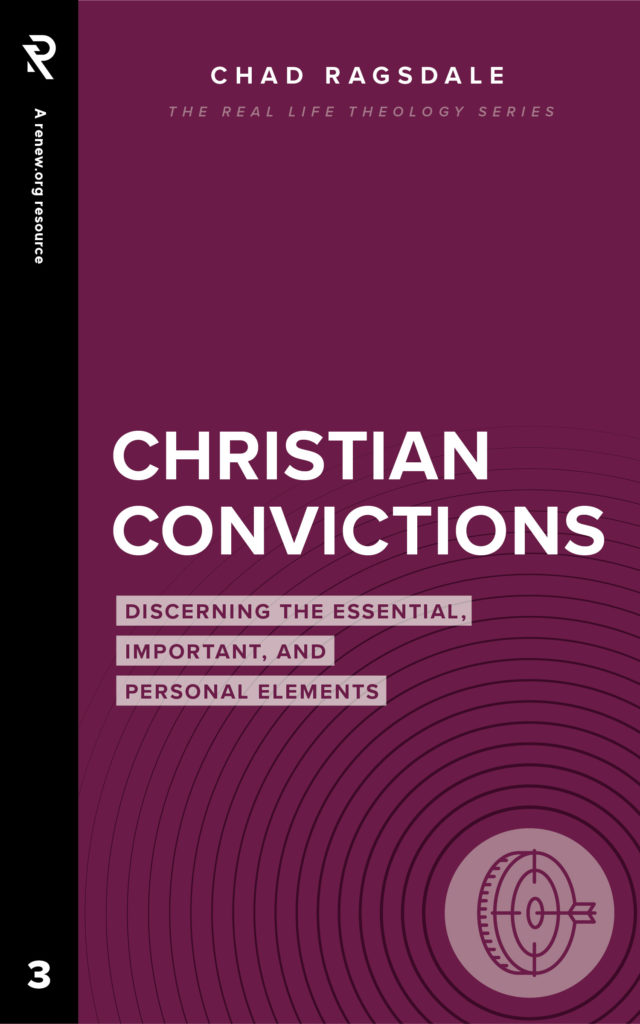
Social Justice from the Left and the Right
Within the Church (broadly speaking), there are two groups of people. Not everyone in the Church fits into one of these groups. In fact, many people in the Church are a little weirded out by these two groups. This is largely because the people in these two groups tend to be agitators. They stir things up. And most people—even if they agree with the agitators—don’t love for things to be stirred up. They’d rather live quiet, drama-free lives.
As someone who often engages in agitation, I respect that. I really do. I don’t love conflict. I hate it, actually. But it has always been a struggle for me to simply sit quietly, especially when I see things that disturb or frustrate me. Unfortunately, our culture is a target-rich environment for things that disturb or frustrate me. Nevertheless (and I say this with complete authenticity), I really want to learn from my more irenic friends (and also from the Holy Spirit) about being slow to speak and quick to listen.
It is in this spirit of peace that I offer these thoughts to the two groups of agitators. One group is sometimes called “social justice warriors.” The other group is sometimes called “culture warriors.” Usually the labels are assigned by one group against the other as if it is shameful to be a social justice warrior or a culture warrior.
Social Justice Warriors & Culture Warriors
SJW are typically left-leaning and progressive in their politics. They are deeply concerned about matters related to justice, particularly economic, racial, and gender justice.
CW, on the other hand, are typically right-leaning and conservative in their politics. They are deeply concerned about traditional values—particularly those values related to faith, family, and sexuality—and how those are being eroded or attacked by the broader culture.
That each group tends to disagree so strongly with the other testifies to their similarities with each other. Fans of two rival football teams argue much more passionately with each other than they do with a person who couldn’t care less about football.
“Fans of two rival football teams argue much more passionately with each other than they do with a person who couldn’t care less about football.”
SJW, on the one hand, too often fail to recognize that they are engaging in culture war. To march for racial justice is to engage in culture war. You’ve just chosen a different battlefield than those you label “culture warriors.”
CW, on the other hand, too often fail to recognize that they are working for social justice. Protesting abortion is a social justice issue. Agitating against the breakdown of family norms is a social justice issue.
An Inevitability & an Obligation
I’m of the personal persuasion that Christians are thrust into “culture wars” whether they like it or not and whether they like the metaphor or not. It’s impossible to read the New Testament and not conclude that Christians will naturally encounter significant opposition from the world. As I’ve outlined here, that doesn’t guarantee that we will always choose the best battles, the best strategies, or even properly identify the real enemy. But it is unbiblical and naïve to believe that we can dodge being drafted into the culture war.
I also believe that Christians have an ongoing obligation to justice within society. Because our world is so broken by the realities of sin, one of the ways we engage in constructive conflict with the world is by advocating and working for that which is right and just. If our faith is real, then it can’t remain real to us privately. It must also possess public and social implications.
So I think it’s safe to say that both groups—those on the right and on the left—are doing culture war and both groups are engaged in social justice. I would argue that these groups not only agree with each other in more than they might assume—they also need each other. Justice suffers when the two groups are alienated and hostile towards each other because justice is both inherently conservative and inherently progressive.
“Justice suffers when the two groups are alienated and hostile towards each other because justice is both inherently conservative and inherently progressive.”
Both And?
In order to talk coherently about justice, there must be a common standard that everyone has in mind. You can’t talk about or agitate for justice without admitting the fact that there is a standard of rightness and fairness that must be protected. You can’t advocate for the rights of the oppressed without testifying to the reality that rights exist. If there are no standards, then there can be no justice. This is why justice is inherently conservative.
Fighting for justice requires the constant identification and safeguarding of deep principles that transcend time and place. But justice is also inherently progressive because the work of justice will never be completed. There will always be work to be done in this world of sin and brokenness. Justice compels us to keep moving toward that standard, recognizing that we will never completely arrive at complete justice this side of heaven and we will never accomplish complete justification outside of the cross.
The Accelerator & the Brake
All justice work needs an element of both conservatism and progressivism in order to be functional and effective. Think of it this way. In order to function safely and effectively, every car needs an accelerator pedal and a brake pedal. A car with an accelerator and no brake is only capable of speeding away. The only thing that will stop it is a crash. A car with a brake and no accelerator will never be able to leave the driveway, thus missing the whole point of being a car.
In the work of justice, conservatism functions like a brake. Progressive social justice too often charges off in the search for justice, but the word has become untethered from any stable or objective meaning. The result is that grievance becomes a substitute for justice, expressive individualism becomes the telos of our advocacy, and “just do something” becomes our default position. In other words, this approach to justice too often ends in a crash.
“Progressive social justice too often charges off in the search for justice, but the word has become untethered from any stable or objective meaning.”
Conservatism can remind us of first principles. Conservatism can challenge us to think carefully about what we mean when we say justice. Conservatism rejects the impatient “just do something” approach to public policy because conservatism reminds us that not all progress actually leads us in the direction of justice. Like Chesterton’s allegory of the fence, conservatism would have us ask questions which may slow us down but might also lead to the greater flourishing of justice.
At the same time, progressivism can function like an accelerator. Conservative social justice too often never leaves the driveway. Conservatives tend to focus on issues that make us feel better about ourselves, thus justifying our inaction in other less comfortable areas.
Chesterton’s allegory doesn’t say that all fences are good. He was simply arguing that every fence needs to be carefully considered before we remove it. We sometimes engage in nostalgia or wishful thinking about a version of the past that never really existed. Conservatives lament the loss of cultural goods. This lament is justified in many cases. Progressives lament that the ideal has yet to be reached. This lament is also justified in many cases.
But it is also true that we both engage in some whitewashing. Conservatives tend to whitewash the past while progressives tend to whitewash the future.
“Conservatives tend to whitewash the past while progressives tend to whitewash the future.”
Listen to Each Other
Justice needs conservativism and progressivism to not be walled off from each other, but to listen to each other. It would do progressives some good to actually talk to conservatives rather than writing off their concerns as being regressive or worse.
I have personally been criticized by progressive friends for raising questions about progressive policies and assumptions regarding everything from student loan forgiveness to illegal immigration. It’s always so disappointing because rather than hearing my questions, I am simply written off. It’s assumed that as a conservative I don’t care about justice when in fact the questions that I’m asking are all about justice.
I think it would also do progressives some good to listen to the concerns that conservatives have regarding issues like abortion, sex, and marriage. If you listen well enough, what you’ll start to hear is that these traditionally conservative issues are really about what is just and right. Justice is not just about traditionally progressive causes.
“It’s assumed that as a conservative I don’t care about justice when in fact the questions that I’m asking are all about justice.”
In the same light, we (I use that term intentionally) conservatives need to do a better job of listening to progressives rather than simply trying to “own” them. It is a shame that caring for marginalized groups has become a partisan issue. Conservatives should be less defensive and more willing to listen and act on issues related to racial, gender, and economic justice.
It is partly because conservatives have abandoned these conversations that so much of the work of injustice has gone off in destructive directions and crashed. Conservatives need to engage in the hope-fueled and resurrection shaped work of social justice. We recognize our limitations in bringing about perfect justice, but this shouldn’t be used as a justification for inaction.
“It is partly because conservatives have abandoned these conversations that so much of the work of injustice has gone off in destructive directions and crashed.”
There is one more thing that every car needs to function well. A competent driver. In the same way, the accomplishment of justice requires the wisdom—a wisdom that ultimately comes from above—to discern when to press the brakes and when to punch the accelerator.
(From chadragsdale.wordpress.com. Used with permission.)








